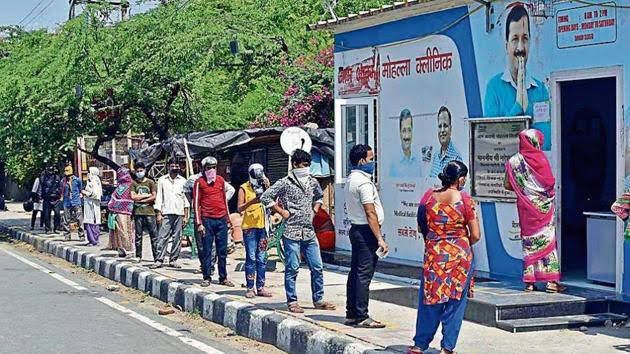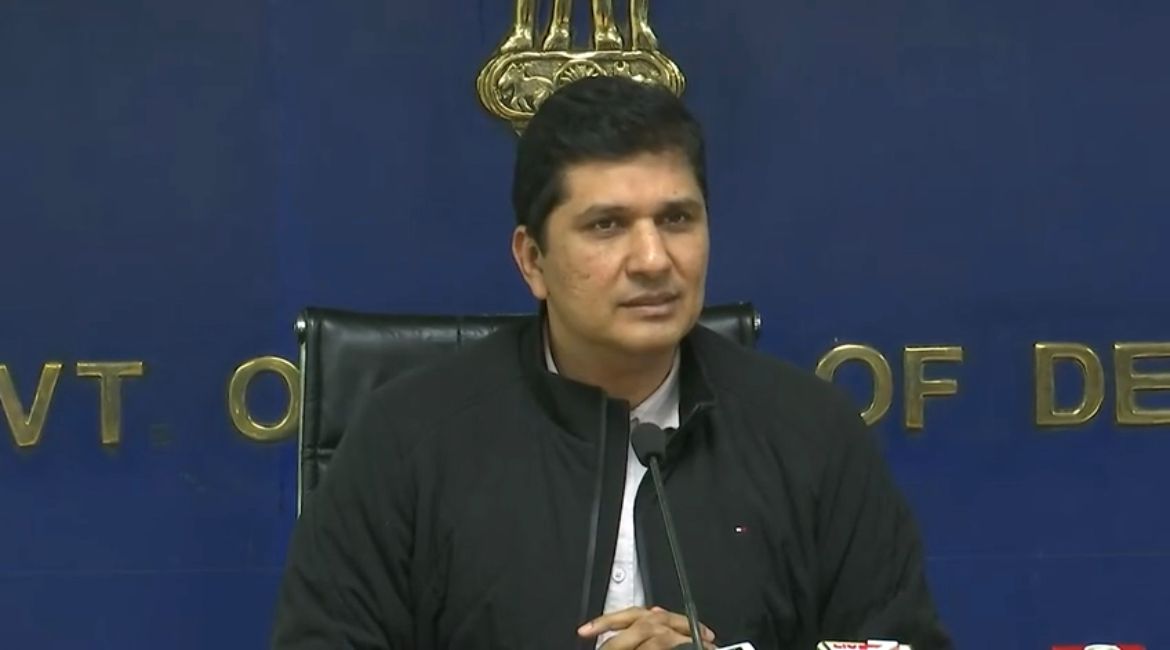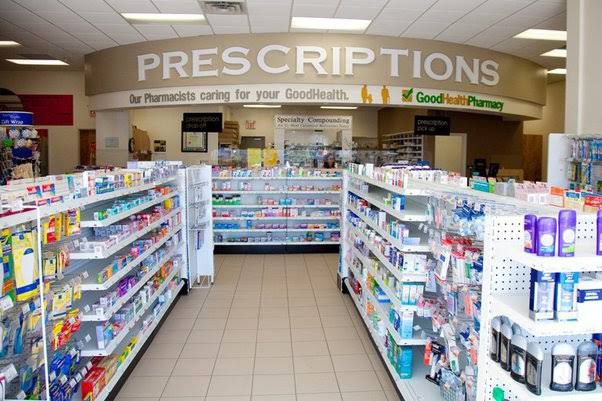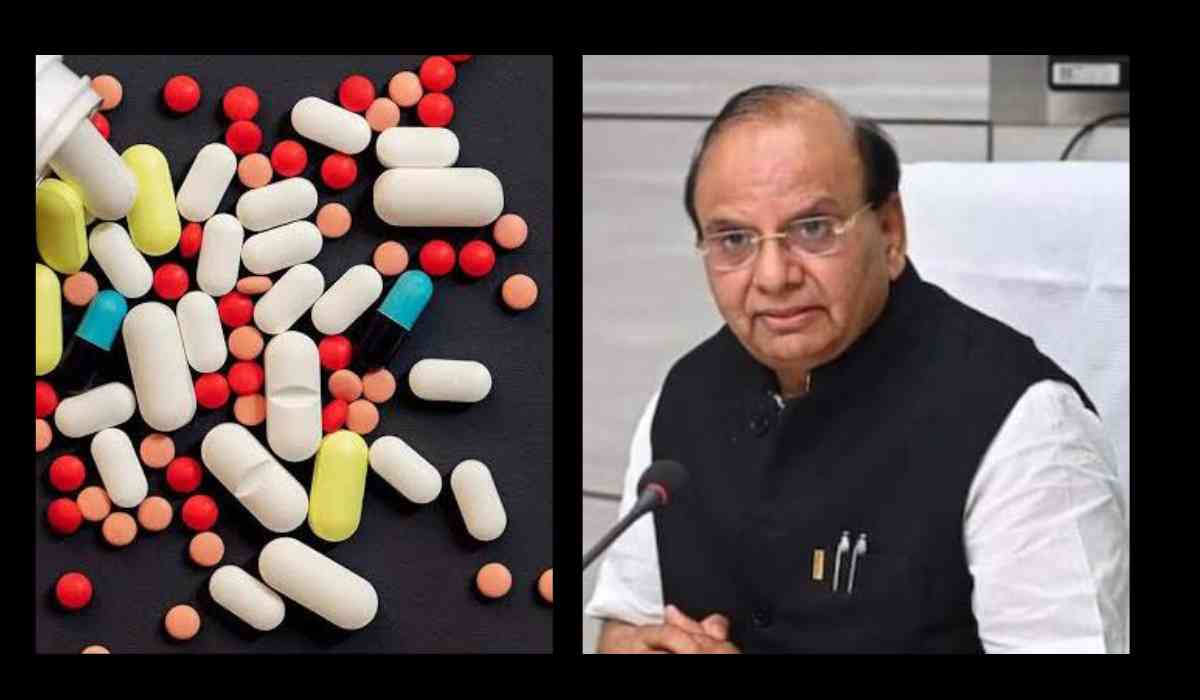Lieutenant-Governor (LG) Vinai Kumar Saxena has proposed an inquiry by the Central Bureau of Investigation (CBI) into the suspected distribution of ‘substandard’ and counterfeit drugs, including life-saving medications, to hospitals and Mohalla Clinics run by the Delhi government.
LG Saxena expressed deep concern in a letter to Chief Secretary Naresh Kumar, recommending a CBI investigation, stating, "I am, to say the least, anguished at the fact that lakhs of hapless people and patients are being supplied fake drugs that 'Not of Standard Quality,' tests. These drugs were subjected to testing by both government and private analysts/laboratories as per the guidelines and statutory provisions of the Drugs and Cosmetics Act, 1940.”
He further remarked that “Accordingly, since the matter of Mohalla Clinics is already entrusted to CBI, this case, which may, inter alia, also involve supply of these failed ‘Not of Standard Quality’ drugs to such clinics, may also be entrusted to the Central Agency, especially in light of the fact that the investigation therein involves multi inter-state stakeholders including CPA-DHS, GNCTD, suppliers/dealers, manufacturers in other states and other state agencies.”

Health Minister Saurabh Bhardwaj Reacted
-
Demanded Suspension of Health Secretary
In response, Delhi’s Health Minister Saurabh Bharadwaj placed the blame on officials, for being now less accountable to the Delhi government, referring to a Central Act enacted earlier in the year, granting the Centre control over bureaucrats. He has called for the Lieutenant-Governor to suspend Health Secretary S.B. Deepak Kumar.
He mentioned approximately 40-50 meetings held with the Health Secretary, Directorate of Health Services (DHS), and other health officials. He criticised the health secretary for not participating in surprise inspections in Delhi government hospitals over the last two weeks, despite regular invitations. Bharadwaj urged the Centre to promptly take stern action against these officials.
Expressing concern, Bhardwaj asked “ The procurement of medicines is done through the CPA. The DHS heads it and the Health Secretary is the overall in-charge of the department. If something has happened, the Centre has the power to take action against these officers. Why are they not acting?"

-
Accused LG for ‘Dual Policy’ in regard to substandard Medicines and Consumables
Mr. Bharadwaj disclosed that upon assuming office in March, he directed an audit of the medicines procured. However, he expressed disappointment, stating that the Health Secretary did not take any action. Consequently, he demanded action against the officials involved in the matter.
Bharadwaj further claimed that samples of consumables were also discovered to be "below standard quality." Surprisingly, the LG has not initiated an inquiry into this matter.
He stated, "I learned that samples of consumables and medicines were collected. Some consumable samples were also deemed substandard.”
“However, it is quite surprising that orders for a CBI investigation have been issued only regarding medicines, and no CBI no CBI inquiry has been initiated into the quality of consumables, as they were procured through the central government's GEM (government-e-market). This double standard in investigating corruption is questionable," the minister said.
Supply of Substandard ‘Drugs’ in Delhi Govt Hospitals
The LG's proposal comes in response to the findings that 10% of drug samples, obtained in July from three significant Delhi government hospitals and subjected to testing at approved drug testing laboratories, did not meet standards. These drugs, acquired through the Central Procurement Agency (CPA) under the Delhi government's health department, were subsequently distributed to various government hospitals.
On July 25, drug samples were collected by the drug controller from the Institute of Human Behaviour and Allied Sciences, Lok Nayak, and Deen Dayal Upadhyay hospitals—facilities serving millions of patients.
In November, reports from these labs were forwarded by the drug controller and the health department for further action to the Directorate of Vigilance (DoV).
The Directorate of Vigilance (DoV) submitted a report to the Lieutenant-Governor on December 5, analysing the reports, discovered that more than 10% of the samples failed the tests and were deemed "not of standard quality."
The LG office stated that, as per the vigilance department, out of the 43 samples dispatched to government labs, three failed the test, and 12 reports were awaiting completion. Additionally, another batch of 43 samples revealed five more failures.
Among the drugs that failed the tests were Cephalexin, a critical antibiotic for treating lung infections; Dexamethasone, a steroid used for addressing life-threatening inflammation in lungs, joints, and body swelling; Levetiracetam, an anti-epilepsy medication; and Amlodepin, a drug prescribed for patients with hypertension.

These drugs, specifically amlodipine, levetiracetam, and pantoprazole, failed testing in both government and private labs. Furthermore, cephalexin and dexamethasone failed in private labs. The report for 11 samples was still pending with the government lab in Chandigarh.
The vigilance department has proposed an expansion of the sampling scope and an immediate halt to the distribution of medicines, given that more than 10% of the samples have failed.
The Directorate of Vigilance (DoV) has also urged an inquiry into the role of suppliers, apart from the Central Procurement Agency (CPA), who acquired these drugs from manufacturers and delivered them to hospitals, suggesting the blacklisting of these companies/dealers.
©️ Copyright 2023. All Rights Reserved Powered by Vygr Media.
























